 Implementing the Project on economical and efficient use of energy in industrial production enterprises in the province until 2030, the Provincial People's Committee has synchronously deployed solutions to support enterprises in economical and efficient use of energy, assigning tasks to relevant departments and branches to organize implementation. At the same time, it has strengthened coordination between agencies and units, mobilized the participation of organizations and individuals in implementing the tasks and solutions of the project.
Implementing the Project on economical and efficient use of energy in industrial production enterprises in the province until 2030, the Provincial People's Committee has synchronously deployed solutions to support enterprises in economical and efficient use of energy, assigning tasks to relevant departments and branches to organize implementation. At the same time, it has strengthened coordination between agencies and units, mobilized the participation of organizations and individuals in implementing the tasks and solutions of the project.

The initiative "Renovating the input and output grinding lines of NM1" by Mr. Le Van Binh, Vitto Company Limited (Tam Duong 2 Industrial Park) helps the company save energy, costs, improve productivity and product quality. Photo: Nguyen Luong
The province currently has 16 industrial parks (IPs) and 16 industrial clusters (ICs) established. By the end of November 2023, the IPs had attracted 361 FDI projects and 109 DDI projects with a total investment capital of over 6.3 million USD and 32.7 trillion VND.
The industrial parks have attracted more than 600 enterprises and production and business establishments to invest, creating jobs for hundreds of thousands of workers, actively contributing to socio-economic development and the province's budget revenue.
Although many outstanding achievements have been achieved in industrial development, according to the assessment of the Provincial People's Committee, the province's industrial sectors have not developed sustainably and in depth, in which, the use of energy in industrial production enterprises still has many inappropriate issues, lack of science , waste, and low energy efficiency.
According to the results of the implementation of the Plan for economical and efficient energy use of the Provincial People's Committee, the province strives to save 5% - 8% of total energy consumption by 2020, however, the achieved results are only 3%; the construction of an energy management model applicable to 50% of enterprises in the list of key energy-using establishments and energy-intensive establishments as prescribed has not yet been implemented.
On the other hand, according to the Department of Industry and Trade, by the end of 2022, the whole province will have 80 enterprises, buildings and construction works in the list of key energy-using facilities, and nearly 250 enterprises, buildings and construction works in the list of near-key energy-using facilities.
In 2022, the total commercial electricity consumption of the province is more than 3.2 million kWh, of which the load of the industry - construction sector accounts for nearly 64%.
Assessing the energy usage situation at industrial production enterprises in the province, Mr. Do Nhu Hoan, Head of Energy Management Department (Department of Industry and Trade) said:
There are 3 industry groups with a large number of key energy consuming enterprises including mechanics, manufacturing, assembly and metal production; production of electrical and electronic equipment; and production of construction materials.
Practical surveys show that the implementation of energy saving activities in industry is focused on in large enterprises and FDI enterprises through policies to encourage energy saving initiatives in production.
In addition, the global supply chain connection also gives this group of businesses the ability to exchange management and operation experiences, purchase modern equipment, bring production efficiency, and reduce energy consumption intensity for factories.
However, for small and medium enterprises - the majority of the province's business structure - most of them lack production and operation management capacity, and use old, outdated technology, leading to higher energy consumption.
Small and medium enterprises mostly focus on production and sales management and pay little attention to energy saving issues. The lack of and weak human resources is also a cause of limitations in accessing and applying energy saving solutions.
To implement the Project on Using Energy Efficiently and Economically in Industrial Production Enterprises in the Province by 2030, the Provincial People's Committee has proposed 6 main groups of solutions including:
Directly support industrial production enterprises to save energy in production; improve the capacity of State management agencies on energy saving; promote communication on energy saving; support units and enterprises to provide services, provide products and solutions related to energy saving; encourage enterprises to apply renewable energy; strengthen scientific research and transfer of new energy saving technologies.
At the same time, the Provincial People's Committee assigned the Department of Industry and Trade to coordinate with relevant localities, departments and branches to promote propaganda work, create favorable conditions for enterprises to access policies supporting the use of energy economically and efficiently in production; build pilot models of energy economically and efficiently in industrial production for replication; strengthen supervision and strictly handle organizations and individuals who violate regulations in the process of selecting and implementing policies supporting the use of energy economically and efficiently in enterprises in violation of regulations.
By 2025, 100% of enterprises in the group of key energy consuming establishments in the province will conduct energy audits and apply energy management systems according to regulations; 70% of industrial production enterprises in industrial parks will have access to and apply solutions for energy saving and efficiency.
By 2030, industrial production establishments in the province will save 8% - 10% of electricity consumption, save 7% of total energy consumption; 90% of industrial production enterprises in industrial parks and 70% of industrial production enterprises in industrial clusters will have access to and apply solutions for energy saving and efficiency; aiming to reduce greenhouse gas emissions from energy saving activities at industrial production establishments in the province by 15%, contributing to achieving zero net greenhouse gas emissions by 2050 according to the Government's roadmap.
Hoang Son
Source











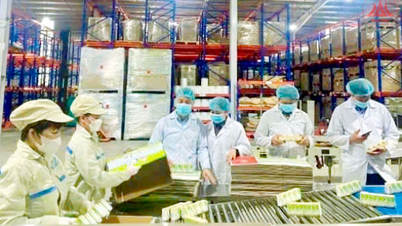


































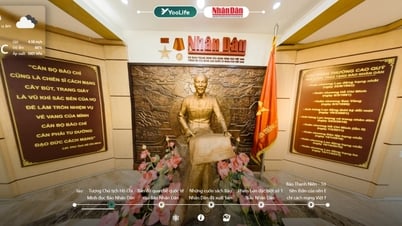

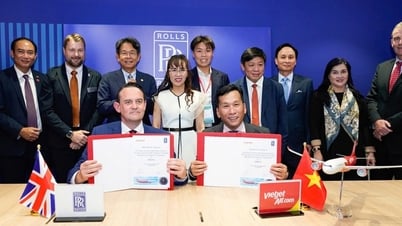





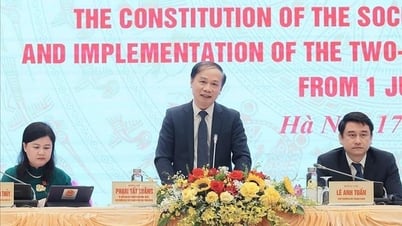





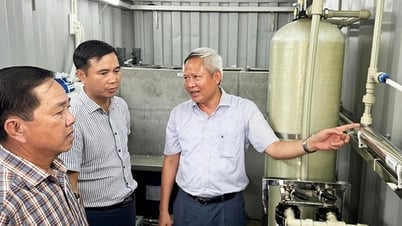

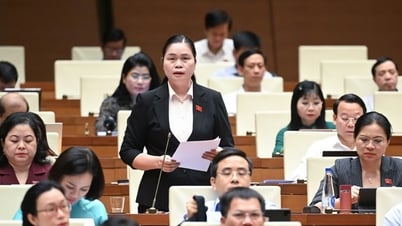










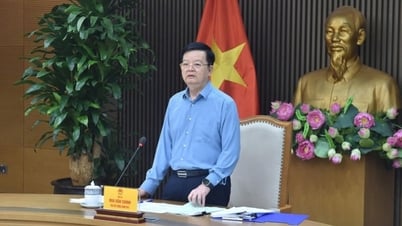



















Comment (0)